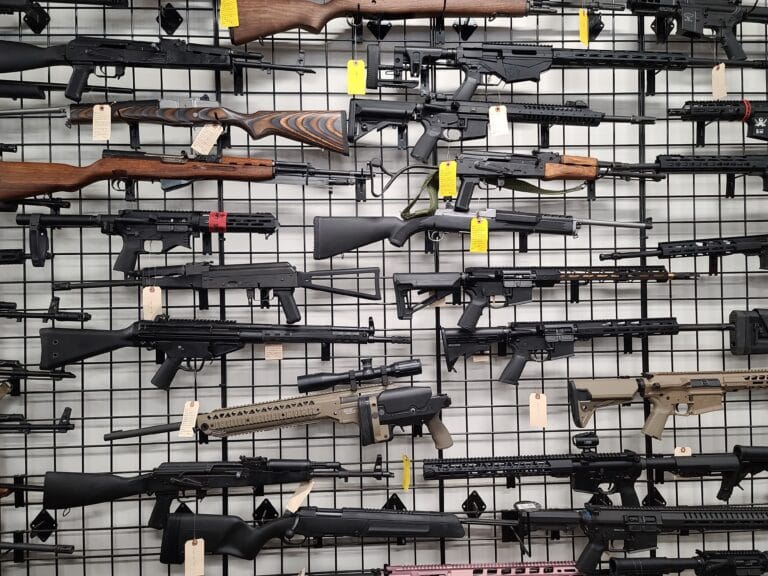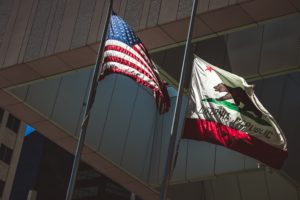California can’t keep 18-to-20-year-olds from buying centerfire semiautomatic rifles.
That’s the ruling from a panel on the Ninth Circuit Court of Appeals. In a 2-1 vote, the panel found the prohibition was too broad to be a “reasonable;e fit” for accomplishing the state’s goal of reducing gun violence. Writing for the majority, Trump-appointed judge Ryan D. Nelson said California’s ban violated the Second Amendment.
“America would not exist without the heroism of the young adults who fought and died in our revolutionary army,” he wrote. “Today we reaffirm that our Constitution still protects the right that enabled their sacrifice: the right of young adults to keep and bear arms.”
The ruling is another setback for California’s efforts to restrict gun ownership. It is the latest in a series of recent rulings which have found the state’s gun-control provisions affecting everything from gun store closures to “assault weapons” bans in conflict with the federal constitution. However, if heard by an en banc panel of the full Ninth Circuit court, it is also a likely candidate for reversal. That has been the ultimate fate of other pro-gun rulings, including ones decided as recently as November.
The office of California Attorney General Rob Bonta (D.) said it is reviewing the decision..
“California will continue to take all necessary steps to prevent and reduce gun violence,” Bonta’s office told The Reload. “We remain committed to defending California’s commonsense gun laws, which save lives and make our communities safer.”
The Firearms Policy Coalition, which filed the suit alongside the Second Amendment Foundation and the Calguns Foundation, said the case is about ensuring all adults are treated equally under the law.
“Age-based discrimination in this context is unconstitutional and morally wrong,” the group said on its website. “These adults could be called to fight and die for their country, but the State of California had prevented them from accessing the full scope of constitutional rights entitled to them under natural law and the Constitution.”
Judge Sidney H. Stein, a Clinton appointee, dissented in the case. He sided with California and said the Court should uphold the ban because those between the age of 18 and 20 are statistically more likely to commit violent crimes.
“Neglecting consideration of either the disproportionate perpetration of violent crime by, or the relatively immature and variable cognitive development among, adults under age 21, the majority opinion fails to conduct a legal analysis that comports with the corpus of precedent within this Circuit and elsewhere,” he wrote.
Judge Kenneth K. Lee, another Trump appointee, argued in a concurrence that reasoning was not only incorrect but dangerous.
“If California can deny the Second Amendment right to young adults based on their group’s disproportionate involvement in violent crimes, then the government can deny that right—as well as other rights—to other groups,” he wrote. “For example, California arguably has a more compelling case if it enacts a similar gun-control law that targets males of all ages instead of young adults. Statistics—and science—show that men almost exclusively commit violent crimes.”
Lee argued the government could use the justification to strip all kinds of different groups of various rights based on the bad actions of a tiny percentage of the group being targeted. He said the argument wouldn’t survive any level of scrutiny if applied to other rights because it “is antithetical to the very nature of individual rights and leads us down a dark path.”
Stein further argued 18-to-20-year-olds were not historically considered adults, at least when it came to firearms regulations. Instead, he cited Lewis Hochheimer’s A Treatise on Law Relating to the Custody of Infants to argue everyone under the age of 21 was “an infant or minor” during the founding era. He claimed they could therefore have their ownership of guns restricted.
“Moreover, the historical record is replete with laws restricting the possession by and sale of firearms to minors,” he wrote.
Nelson said the argument that the Second Amendment applies only to older adults is “strays from the most obvious historical interpretation” and would need to be “supported by powerful evidence” to be convincing. But, he said, “it is not.”
“The Second Amendment refers to the militia, and young adults had to be in the militia and bring their own firearms,” Nelson wrote. “This reference implies at least that young adults needed to have their own firearms.”
While the three-judge panel overturned the lower court’s determination about the ban on semiautomatic centerfire rifles, it upheld California’s general prohibition on adults under 21 owning rifles and shotguns. Plaintiffs had also challenged that provision, but the panel did not agree it was unconstitutional because it included significant exceptions. In particular, the judges noted allowing anyone who obtains a hunting license to buy a long gun was a far more permissible standard than the exceptions allowed in the centerfire semiautomatic rifle ban, which only applied to those in law enforcement or the military.
UPDATE 5-11-2022 4:22 PM EASTERN: This piece has been updated to include comment from the California Attorney General’s office.






